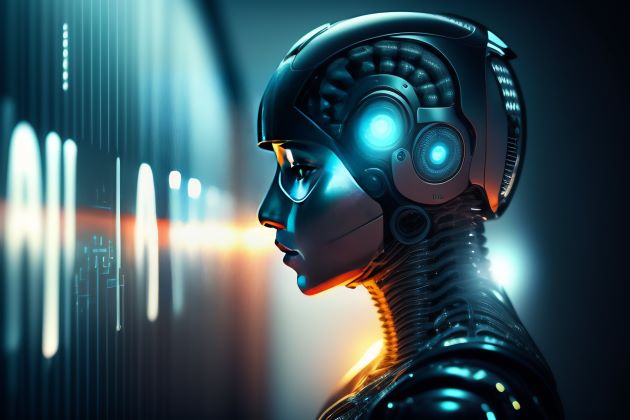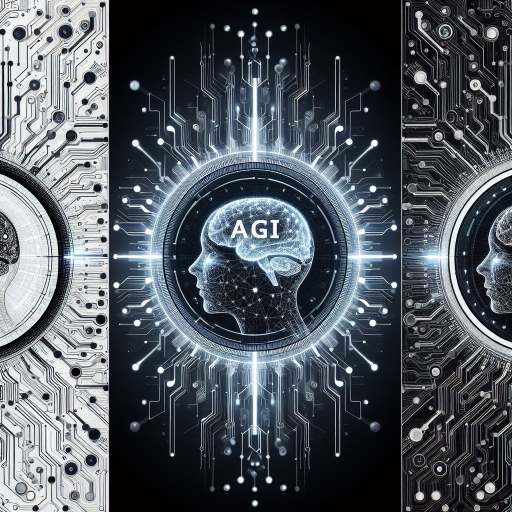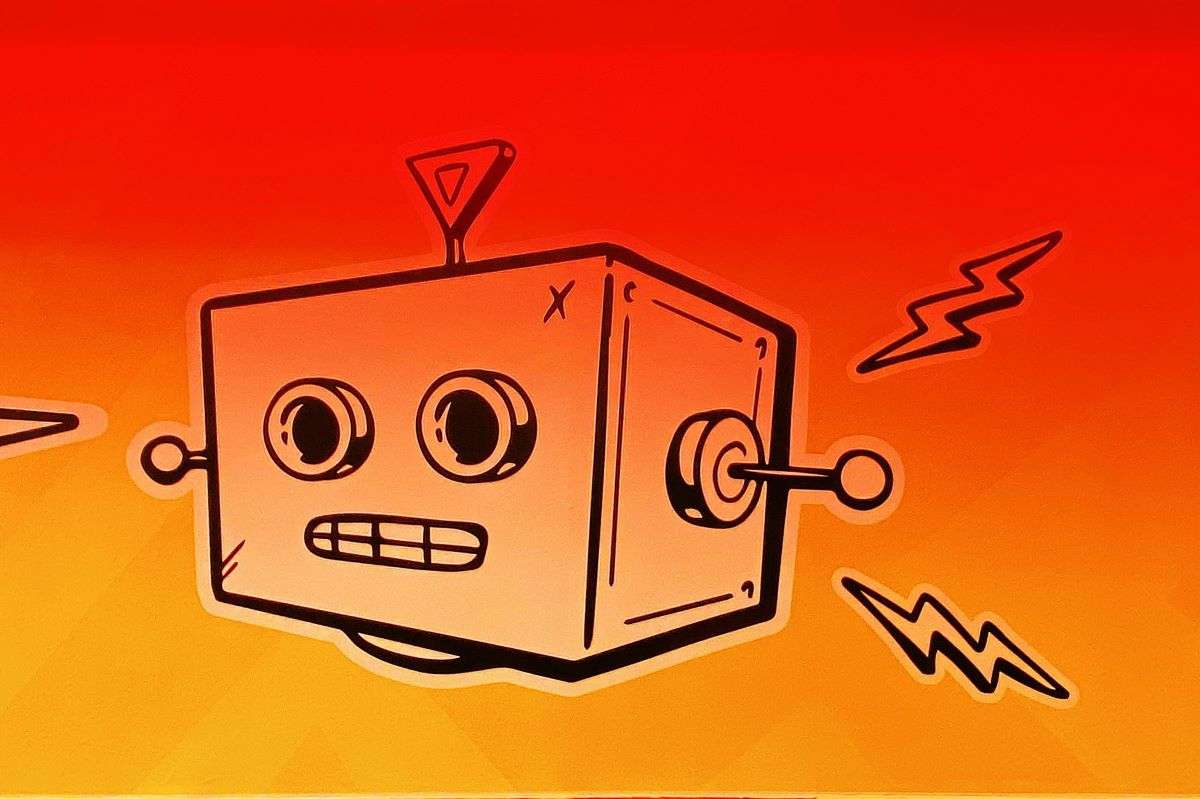Have you ever chatted with ChatGPT and felt like it understood your mood? Or maybe you’ve seen headlines. And does ChatGPT can provides emotions full Answer. Claiming AI can now “read” our emotions. Let’s unpack this fascinating topic and see what’s really going on!
Table of Contents
First ‘of all let’s imagine you have critical condition of your exam and at that time. you are using the AI or ChatGPT and you got some answer normally, but you want very impressive answer. At this time, we need human emotion understander, that’s why we want the AGI or General intelligence. In easy way the requirement of emotion understanding by AI becomes important

Inside the Mind (or not) of ChatGPT
Think a super-powered chatbot that’s been trained on a big amount of text data. That’s ChatGPT in a nutshell. It can do realistic conversation, write various kinds of creative content, and even answer your questions in very Knowledgeable way. But ,
Can it truly understand the complexities of human emotions?
Here’s the thing, ChatGPT is impressive, but it doesn’t have emotions itself. It’s more like a master mimic. Think of it like this, you tell ChatGPT about a stressful day at work. By analyzing infinite conversations and text examples, it can recognize patterns in language that often signal stress. Based on this, ChatGPT can craft a response that acknowledges your feelings, even if it doesn’t truly understand them.
OpenAI Launches GPT‑OSS: Open-Weight Models for Everyone
OpenAI has released GPT‑OSS, a set of open-weight AI models designed for reasoning tasks. There are two versions available: gpt‑oss‑120b, which delivers high performance comparable to O4‑mini and can run on a single high-end GPU, and gpt‑oss‑20b, which is optimized for devices with just 16GB of RAM.
What makes GPT‑OSS unique is its flexibility. Developers can run these models locally, fine-tune them, and integrate them into their own tools or products—no API access required. The models also support advanced reasoning, tool use, and structured outputs, making them powerful and adaptable for a wide range of use cases.
OpenAI conducted thorough safety evaluations, including adversarial tests to check for potential misuse in areas like cybersecurity. These findings were shared publicly to promote transparency.
In a growing ecosystem of open-weight models from Meta, Mistral, and others, GPT‑OSS stands out with strong performance, low latency, and a permissive Apache 2.0 license. It’s a big step toward more open, customizable AI tools that can be run on private infrastructure or offline environments.
The AGI: Artificial General Intelligence
This ability to understand emotional patterns is a big step for AI. Some researchers believe it’s a great achievement towards Artificial General Intelligence (AGI). AGI is a hypothetical future AI with human-level intelligence and the ability to understand and inputs to emotions in a nuanced way. It’s like science fiction for now, but research like ChatGPT’s capabilities is definitely competitive. And this type of technology advancement is best for the unbelievable development.
And this AGI tech can make developer more advanced and very imaginative and creative.
Beyond the Text: Can AI Understand Our Feelings?
The short answer is kind of. There are AI systems being developed that analyze facial expressions, voice tones, and even body language to try to gauge emotions. However, these systems are still in their early stages and aren’t always accurate. For example, someone might clench their jaw due to concentration, not anger.
Just like we know when we make the python face detector program so from that we can easily understand this problem. Because the program is not be accurate.
But according to me!….
Just like we know the GPT is Made by big text data. similarly, the Emotion detection can make by the human emotions data at varies site, applications, webapps etc. like example we can make the data set from WhatsApp status because most of the people like to express their emotion on it, snapchat, and Facebook or Instagram as well.
yup…! next

The Language of Emotions: How ChatGPT Learns
So, what’s the psychology behind ChatGPT’s responses? It’s all about the data it’s been trained on. If that data includes a lot of emotional language and examples, ChatGPT becomes better at analyzing and responding to those emotions in conversations. Imagine it like learning a new language – the more you’re exposed to it, the better you understand it. This data can come from social media posts, news articles, or even works of fiction. By analyzing these vast amounts of text, ChatGPT learns to associate certain words and paragraphs with specific emotions. And also, AI can understand the emotion very best thing which we are using every day.
what is that Yaa it’s our emoji’s 😀😁😂🤣😎🤩😍😥😏😚, because everyone using it very massively and accurately.
Update check ChatGPT-4o
The Future of AI and Emotions: A Symphony of Machines and Humans
The development of AI that can comprehend and respond to emotions is an interesting topic. As technology progresses, we may see AI employed in applications such as mental health chatbots or more personalized educational experiences. Consider an AI instructor that can adapt its teaching technique based on a pupil’s emotional state, delivering encouragement or shifting gears if the student is frustrated.
However, it is critical to remember that AI is still a tool. The human connection and true emotional understanding will always be invaluable. AI cannot duplicate experiences like a reassuring hug from a loved one or shared laughter with a buddy.
The Advantages and Disadvantages of AI Detecting Human Emotions:
Advantages:
- Better Understanding of Needs: Imagine having a friend who just gets you. AI’s ability to understand human emotions can be like a friend, helping businesses anticipate and meet customer needs with greater empathy and insight. you can learn character.ai by themetamyths blog
- Personalized Support: Think of AI as a compassionate counselor who tailors advice just for you. By recognizing your emotions, AI can offer support that feels like it’s coming from someone who truly understands what you’re going through.
- Efficiency with Heart: Picture a tireless helper who’s always there when you need them. Emotion-detecting AI provides efficient and accessible emotional support, ensuring that help is available whenever and wherever it’s needed most.
- Insightful Conversations: Imagine sitting down with a wise mentor who helps you make sense of the world. AI’s ability to analyze emotional data can offer valuable insights into human behavior and societal trends, guiding us toward a better understanding of ourselves and each other.
- Early Support, Lifelong Impact: Consider having a caring guardian who watches out for you, even before you realize you need help. Emotion-detecting AI can identify signs of emotional distress early on, offering support that can make a real difference in people’s lives.
Disadvantages:
- Respect for Privacy: Just as you value your personal space, it’s important to consider the privacy implications of AI analyzing your emotions. We must ensure that emotional data is handled with the same care and respect we expect from trusted friends. And also, danger for cyberbullying
- Fairness and Understanding: Like any friend, AI should treat everyone with fairness and understanding. However, it can become risk that biases in AI algorithms could lead to misunderstandings or even discrimination based on factors religion or gender.
- Preserving Human Connections: While AI can provide support, nothing can replace the warmth and understanding of human connection. It’s essential to nurture genuine relationships and ensure that technology enhances rather than replaces our bonds with each other.
- Balancing Support and Independence: As helpful as AI can be, it’s important not to become overly reliant on technology for emotional support. We must strike a balance, maintaining our own emotional awareness and resilience while appreciating the support AI can offer.
- Ethical Guidance: Like any powerful tool, AI requires ethical guidance to ensure it’s used responsibly and ethically. We must navigate complex questions about consent, autonomy, and the appropriate use of emotional data with care and compassion. Also, very biggest problem for the biometric or account services.
Some Future Projects Related to AGI
Think this, you walk into a bustling coffee shop, the aroma of fresh beans spread around you. You notice the room, searching for a familiar face, but everyone seems attract toward their phones. Feeling a pang of loneliness, you head towards an empty table, laptop in hand. Suddenly, a professional voice cuts through the cafe chatter.
“Good day?”
You look up, surprised. Sitting across from you is a sleek, small device – not a robot, not a computer screen. Yet, its voice is warm and inviting. This, my friend, is a vi into a future powered by Artificial General Intelligence (AGI).

AGI: Beyond Siri and Alexa
We’re all familiar with AI assistants like Siri and Alexa. They’re helpful for setting alarms and playing music, but they wouldn’t win any awards for emotional intelligence. AGI, however, is a different beast entirely. It’s the holy grail of AI research – a machine that can not only learn and adapt but also understand and respond to human emotions just as well (or maybe even better) than another human. Wow, please think like that if we are listening to music or at that we have any friend to enjoy dual music it’s very fascinating.
It’s also best for self-speaking practice. And some time we think and, wish we have any buddy to decision on any topic at that time AGI become very best replacement of Siri and Alexa
The Turing Test 2.0: Can You Tell the Machine from Your Mate?
The famous Turing Test, developed by Alan Turing in the 1950s, asks if a machine can exhibit intelligent behavior equivalent to, or not a different from, that of a human. In our coffee shop scenario, the AGI wouldn’t just answer your questions about the weather. It might pick up on your emotional clue from your body language and facial expressions, offering a listening ear and a comforting conversation that feels genuinely human.
Friend or Foe? The Ethics of Emotional AI
The idea of machines that can understand our emotions is captivating and disconcerting at the same time. Think about it: What could be better? Consequently, AI may also provide a personalized help to human beings with psychological problems like depression and anxiety. They might become our best friends; someone who we approach when we are speechless.
But what about the other side? Can an AGI utilize feelings for itself? Can technology really evolve into such a sophisticated mimicry of human interaction that it takes the place of real social intercourse? These are questions of morality which demand careful examination as we venture deeper into the field of emotional AI
The Future We Choose: A Collaboration, Not a Competition
The future of AGI has nothing to do with substituting human interaction. It’s about making a different kind of collaboration, where machines enhance our emotional intelligence. Could the AGI at the coffee shop not be only a conversationalist but also a sounding board that can help you think through your problems or give you a new perspective on an issue?
Responsible development is the answer. We need to make sure that AGI is developed in such a way that it always promotes human well-being. One good friend will listen to your grievances and help you find strength within yourself to get over them.
So, perhaps next time you feel lonely instead of picking up your phone, find your friendly local AGI for chat; who knows, that might just become your newest best friend- always there for you with an attentive ear and cup (or whatever drink it may be).
For the newer excited topics click here –> Read New





